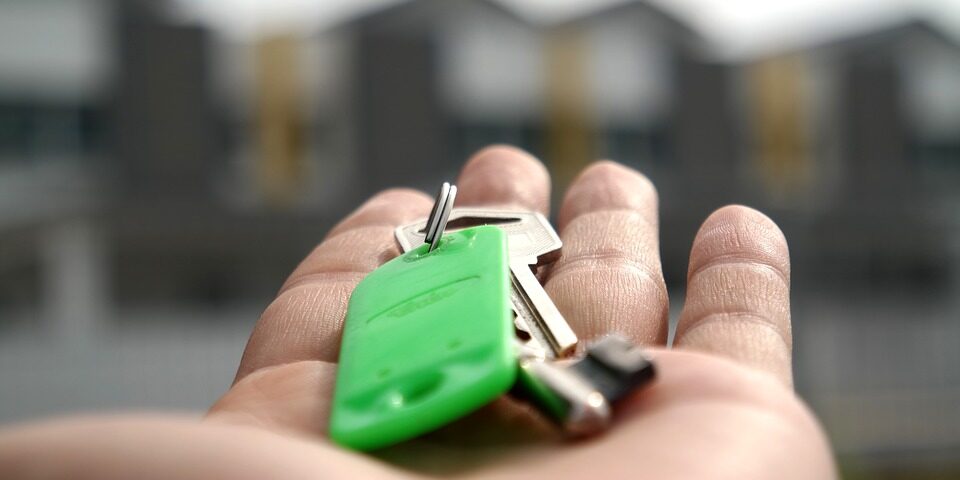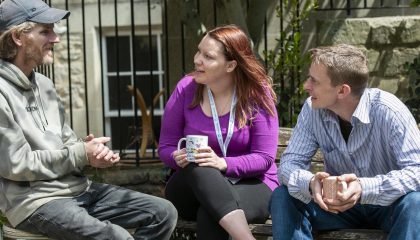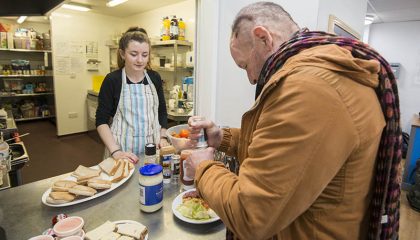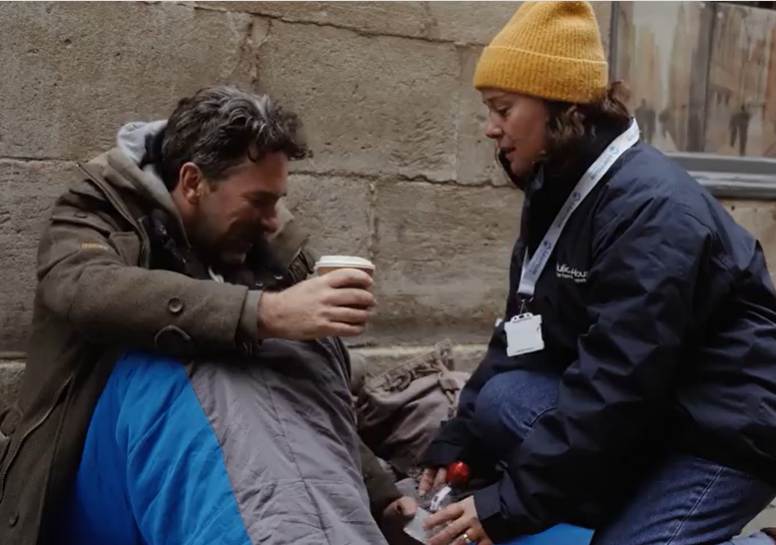
Julian House has provided specialist services to people leaving prison or otherwise involved or at risk of involvement with the criminal justice system since 2006. We run multiple supported housing units where clients get one to one support to rebuild their lives once leaving prison.
We chatted to some of our colleagues who work with clients in our Supported Housing Project to see what the service provides, who it supports, and why the service is needed.
What sort of clients do you work with?
The types of clients we support are medium to high-risk offenders, these are generally people that are entrenched within the homeless community but also within the criminal world. The root cause of this could be break down in families, childhood trauma, substance misuse and being socially excluded.
We support individuals who are actively under the supervision of probation who may be serving the rest of their sentences in the community, these range from short sentences for prolific chaotic behaviours/offences to longer sentences for more serious high-risk offences.
Why is supported housing important for these clients?
Supported housing serves as a life-line to these clients, as without these properties they would be street homeless or sofa surfing, neither of which is a protective factor for rehabilitation and would increase the reasons of re-offending. Our supported housing projects provide person -centred, trauma focused, support to some of the most socially excluded in our society.
We have 24-hour CCTV in the properties for their own protection, risk management and for safety of both clients and others. This is reviewed by staff.
Supported housing in BANES works closely with other agencies, such as the National Probation Service and various services within the Police & Specialist drug and alcohol agencies. This joint working helps to re-habilitate offenders back in to the community and reduce the risk of re-offending, which in turn reduces the number of victims.
We support the clients to figure out their own personal barriers and aim to help them break these down and change their lifestyle from that of being institutionalised in the prison system to being a ‘regular person.’ Ultimately that is what they all want, what we take for granted- a secure roof over our heads, family & friends, to be free from addiction, to be free of money problems and not having to worry about where they’re next meal is coming from, or where they will be spending the night tonight.
What sort of things do you support people with?
We support people to claim the benefits they are entitled to, access mental health services, engage with substance misuse services and get them involved with voluntary work and learning opportunities. On a day-to-day basis we wear many hats; we can be setting up a bank accounts for someone without any ID, attending a social services meeting to support a client to gain access to see their children, or I could be going to view a potential property with a client once they have successfully completed they’re rehabilitation journey.
What are some of the biggest challenges your clients face that mean they need the Supported Housing Service?
The biggest challenges faced by our clients are; being socially excluded, significant mental health issues, childhood trauma, substance misuse and addiction, financial issues such as debt, homelessness, break-downs in families, learning disabilities, lack of life-skills from being institutionalised and poor thinking skills.
Is there anything else about your role that you think is interesting/important that the public might like to know?
The work we do is crucial for bringing individuals back from a lifestyle they are actively choosing to leave behind them, by bringing families back together, introducing clients to boundaries, breaking the cycle of addiction, helping to gain diagnosis for individuals with mental health and learning disabilities that they may have gone their lifetime with no support for. In turn, this creates fewer victims in the community and makes the community in which others live in a safer place for all.
A lot of the people we work with are not “bad people” they may have committed offences but no one wakes up and genuinely believes the prison system is for them, there is always an underlying reason- for example; “I have rules now at 27 I didn’t have at 11” or “I first used (injected) Heroin at 11 and when I began selling drugs my mother used to buy it from me.” A lot of these individuals do want to change their lives and need new opportunities. We provide the framework of boundaries, multi-agency work, substance recovery and risk management whilst always involving the client.
You can find out more about our Criminal Justice Services here.






